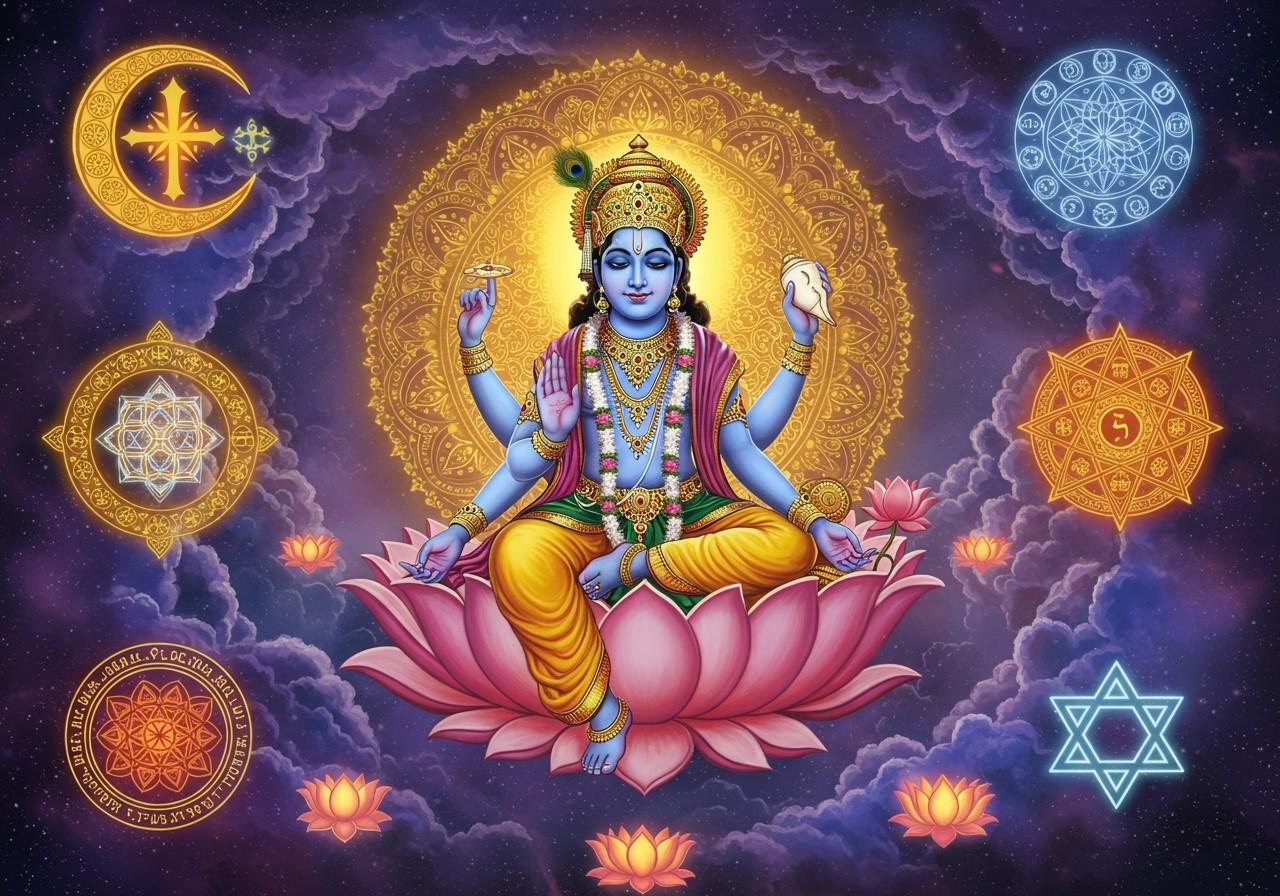
Vaishnavism, a major Hindu tradition, centers on the worship of Vishnu and his incarnations, especially Krishna and Rama. With a rich theological framework and long history of ritual practices, Vaishnavism offers a unique spiritual path. This article compares Vaishnavism with other religions, particularly Buddhism and Sikhism, to highlight its distinct characteristics.
Vaishnavism and Buddhism: Key Differences
While both originated in the Indian subcontinent, Vaishnavism and Buddhism diverge significantly in their core beliefs and practices.
- Origins and Historical Context: Vaishnavism’s roots lie in Vedic traditions and epics like the Mahabharata and Ramayana. Buddhism, founded by Siddhartha Gautama (Buddha) around the 6th century BCE, emerged as a reform movement against certain Vedic practices.
- Deities and Worship: Vaishnavism revolves around Vishnu and his avatars, emphasizing bhakti (devotion). Buddhism generally rejects a creator god, focusing on Buddha’s teachings and enlightenment.
- Philosophical Outlook: Vaishnavism promotes a personal god and the soul’s eternal bond with Vishnu. Buddhism teaches anatta (non-self) and impermanence.
- Ritual Practices: Vaishnava rituals include temple worship, chanting, and festivals like Janmashtami and Ram Navami. Buddhist practices center on meditation, mindfulness, and monastic life.
- Scriptures: Vaishnavism’s core texts are the Bhagavad Gita, Puranas, and Vedas. Buddhism relies on the Tripitaka and various Sutras.
- Salvation and Liberation: Vaishnavism seeks moksha (liberation) through devotion to Vishnu. Buddhism aims for nirvana, the cessation of suffering and rebirth.
- Ethical Teachings: Vaishnava ethics are rooted in dharma and the teachings of Krishna and Rama. Buddhist ethics are based on the Eightfold Path and Four Noble Truths.
Vaishnavism and Sikhism: Key Differences
Sikhism, founded by Guru Nanak in the 15th century CE in Punjab, blends Bhakti and Sufi traditions. Comparing it with Vaishnavism reveals both similarities and differences.
- Origins and Historical Context: Vaishnavism’s ancient origins contrast with Sikhism’s relatively recent 15th-century foundation, addressing social and religious issues of that time.
- Deities and Worship: Vaishnavism’s focus on Vishnu and his avatars contrasts with Sikhism’s emphasis on Waheguru (formless God) and Guru’s teachings. Sikhs prioritize the divine name and living a truthful life.
- Philosophical Outlook: Both emphasize a personal relationship with God, but express it differently. Vaishnavism focuses on bhakti, while Sikhism stresses Naam Japna (remembering God’s name), Kirat Karni (honest living), and Vand Chakna (sharing with others).
- Ritual Practices: Vaishnava practices include temple rituals, chanting, and festivals. Sikhism involves Nitnem (daily prayers), Seva (community service), and Sangat (congregational worship).
- Scriptures: Vaishnava scriptures include the Bhagavad Gita and Puranas. Sikhism’s central text is the Guru Granth Sahib, containing hymns and teachings of the Sikh Gurus.
- Salvation and Liberation: Vaishnavism seeks moksha through devotion to Vishnu. Sikhism aims for union with God through righteous living and meditation on God’s name.
- Ethical Teachings: Vaishnava ethics revolve around dharma, while Sikhism promotes equality, social justice, and honesty.
Vaishnavism and Shaivism: Similarities and Differences
Vaishnavism and Shaivism, while both major Hindu traditions, differ in their primary deity of worship. Vaishnavas worship Vishnu and his incarnations, while Shaivites worship Shiva. However, both traditions share some common ground in their beliefs and practices.
- Similarities: Both accept the Vedas as sacred texts and believe in the concepts of karma, reincarnation, and moksha. Both traditions also incorporate bhakti yoga as a path to spiritual liberation.
- Differences: The primary difference lies in the chosen deity of worship. Vaishnavism emphasizes the loving and benevolent aspects of God, often depicted through Vishnu’s avatars like Krishna and Rama. Shaivism, on the other hand, acknowledges both the benevolent and fearsome aspects of God, as represented by Shiva’s various forms.
Poojn.in: Supporting Your Spiritual Journey
Poojn.in offers a wide selection of spiritual products for various traditions, including Vaishnavism. Explore our collection to enhance your practice:
- Laddu Gopal Murtis: Beautiful deities for your home altar.
- Bhagwa Namavali: Traditional attire for deities.
- Puja Items: Incense, lamps, and other essentials.
We also offer items for other faiths, including Buddhist prayer items and Jain worship items. Visit www.poojn.in for our complete collection.
Conclusion
Vaishnavism, with its rich history, devotion to Vishnu, and elaborate rituals, provides a unique path to moksha through bhakti. Comparing it with Buddhism and Sikhism reveals distinct perspectives on divinity, ethics, and worship. Buddhism emphasizes enlightenment and rejects a creator god, while Sikhism focuses on equality and righteous living. These diverse spiritual paths from the Indian subcontinent offer various approaches to spiritual growth. Understanding these differences promotes respect and harmony among traditions.


